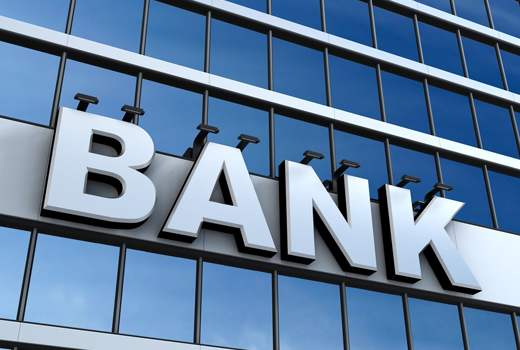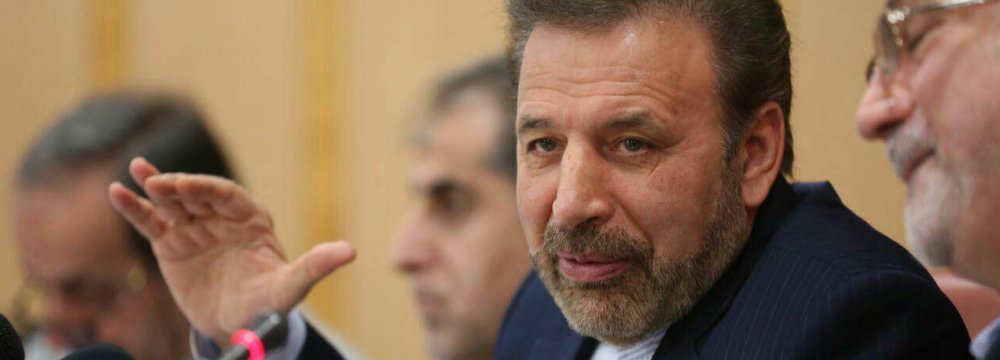
Iran Secures Correspondent Relations With 900 Banks

"Barely a year has passed since JCPOA [Iran's nuclear accord with world powers] was implemented, but we managed to establish ties with foreign banks with each passing month and now we have correspondent relations with 900 banks," Mahmoud Vaezi was also quoted as saying by Banker.ir.
 Mahmoud Vaezi
Mahmoud Vaezi
On July 14, 2015, P5+1 (China, France, Russia, the United Kingdom, and the United States, plus Germany) and Iran reached a Joint Comprehensive Plan of Action regarding Iran's nuclear program.
October 18, 2015 marked its Adoption Day, the date on which the accord came into effect and participants began taking steps to implement their commitments. January 16, 2016, marks the Implementation Day of JCPOA.
However, since sanctions were lifted in January, the world's major banks continued to stay away because they fear being penalized by remaining US sanctions over issues such as money laundering. This has slowed Iran's efforts to rebuild its foreign trade and lure investment.
The minister said while the financial state of President Hassan Rouhani's administration is currently improving, "we will inject liquidity into the banks and insist that the banks do not take up [irrelevant] business ventures and allocate loans to serve the country's manufacturing output".
Speaking at an event in the northern province of Mazandaran, which was attended by businessmen, exporters and manufacturers, Vaezi commended the performance of state banks of the province in allocating loans to production units.
"The private banks must also support the private sector just like their public-sector peers," he added.
Reassuring manufacturers that the government is striving to solve the problems facing them such as the shortage of working capital and the prevalence of unnecessary regulations, the official warned producers against "expecting the government to solve their problems overnight".
Vaezi said all administrations that came to power since the 1979 Islamic Revolution have pursued the goal of supporting the private sector and the current government is no exception.
"The current administration has stressed strengthening the country by helping the private sector from the outset," he said.
"The private sector must gradually become strong enough to engage in exports and as long as we do not have exports, we will not know the true meaning of trade."
The World Bank in its latest analysis forecast Iran’s economy to grow at an annual average rate of 4.5% in 2016–18.
According to the bank, the oil and gas sector is projected to grow by 14.5% in 2016 up from 12.9% in the spring.


Trump weighs using $2 billion in CHIPS Act funding for critical minerals

Codelco cuts 2025 copper forecast after El Teniente mine collapse

Electra converts debt, launches $30M raise to jumpstart stalled cobalt refinery

Barrick’s Reko Diq in line for $410M ADB backing

Abcourt readies Sleeping Giant mill to pour first gold since 2014

Nevada army depot to serve as base for first US strategic minerals stockpile

SQM boosts lithium supply plans as prices flick higher

Viridis unveils 200Mt initial reserve for Brazil rare earth project

Tailings could meet much of US critical mineral demand – study

Kyrgyzstan kicks off underground gold mining at Kumtor

Kyrgyzstan kicks off underground gold mining at Kumtor

KoBold Metals granted lithium exploration rights in Congo

Freeport Indonesia to wrap up Gresik plant repairs by early September

Energy Fuels soars on Vulcan Elements partnership

Northern Dynasty sticks to proposal in battle to lift Pebble mine veto

Giustra-backed mining firm teams up with informal miners in Colombia

Critical Metals signs agreement to supply rare earth to US government-funded facility

China extends rare earth controls to imported material

Galan Lithium proceeds with $13M financing for Argentina project

Kyrgyzstan kicks off underground gold mining at Kumtor

Freeport Indonesia to wrap up Gresik plant repairs by early September

Energy Fuels soars on Vulcan Elements partnership

Northern Dynasty sticks to proposal in battle to lift Pebble mine veto

Giustra-backed mining firm teams up with informal miners in Colombia

Critical Metals signs agreement to supply rare earth to US government-funded facility

China extends rare earth controls to imported material

Galan Lithium proceeds with $13M financing for Argentina project

Silver price touches $39 as market weighs rate cut outlook

















